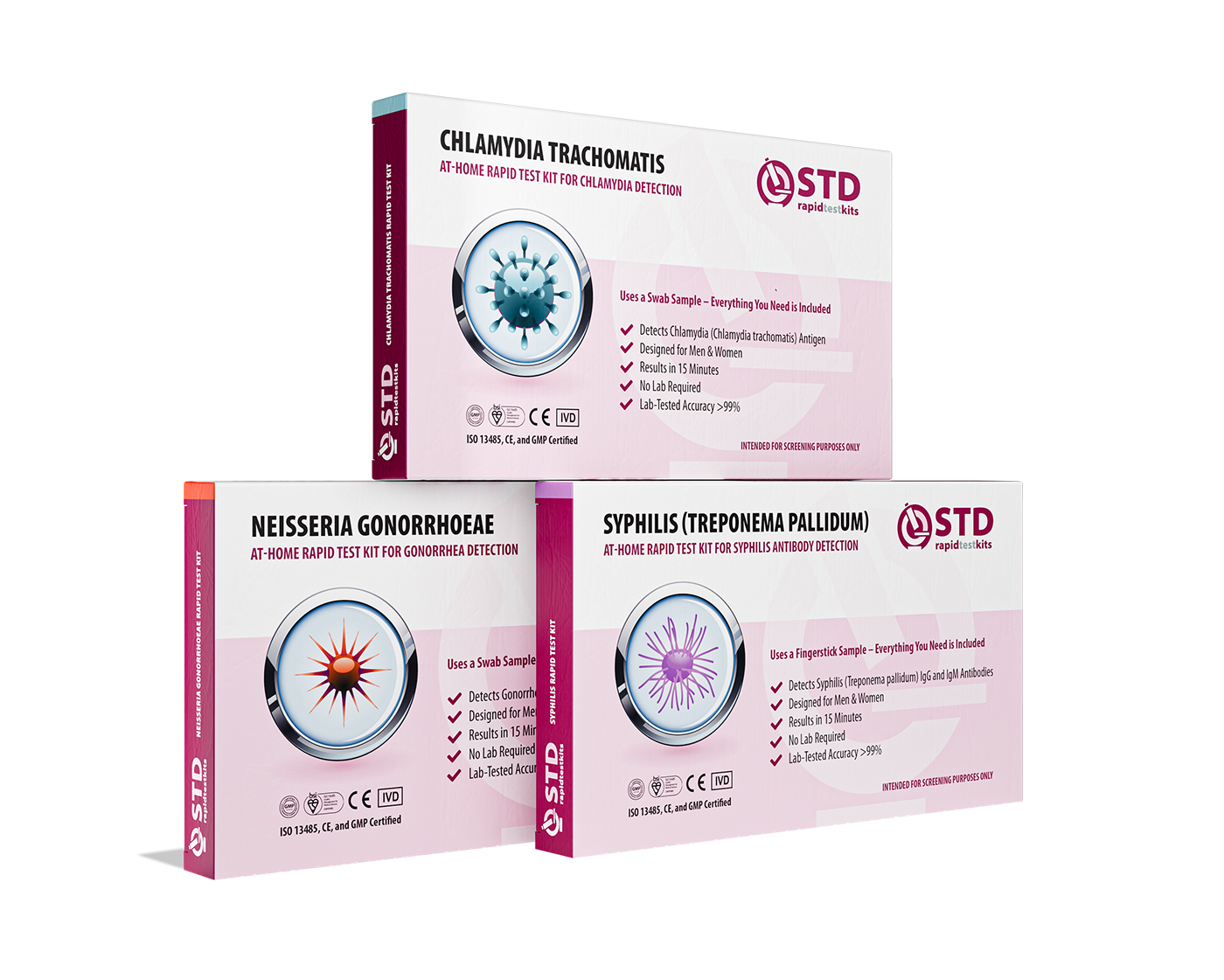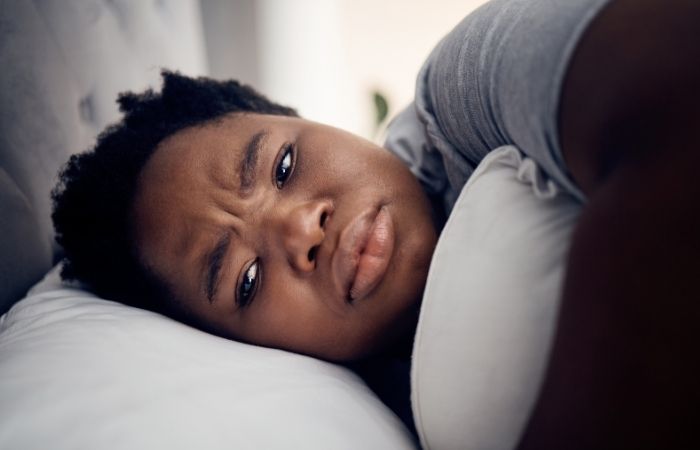Quick Answer: STD symptoms in Black women are often missed due to racial bias, diagnostic assumptions, and lack of provider training. Many STIs get mislabeled as yeast infections or BV, delaying treatment and increasing long-term risk.
“It’s Just BV Again”: When Bias Becomes the Diagnosis
Janelle, 27, had seen three doctors in two years for the same symptoms: abnormal discharge, pelvic discomfort, and pain during sex. Each time, she was told it was bacterial vaginosis or a yeast infection. Antibiotics, antifungals, creams, none of it helped for long. It wasn’t until she went to an urgent care clinic outside her zip code that someone ran a full STI panel. She tested positive for trichomoniasis.
“I told the first doctor it didn’t feel like BV. I knew my body. She literally rolled her eyes. I left feeling stupid and still sick.”
Black women are diagnosed with BV at nearly double the rate of white women. But here’s the twist: that’s not always because they have it. Too often, symptoms that could be signs of chlamydia, gonorrhea, or trich get defaulted to BV or yeast infections, especially when the patient is a young Black woman. The real infection stays untreated, and the cycle repeats.

People are also looking for: From Gums to Tonsils: The STD Symptoms Dentists Are Catching First
The Pain They Don’t Believe: How Black Women’s Symptoms Get Ignored
It’s not just discharge. Black women report burning, pain during sex, abnormal bleeding, and persistent pelvic cramps, but providers frequently downplay these symptoms. Studies show that providers are less likely to offer STD testing when a Black woman doesn’t explicitly ask for it, and less likely to believe her self-reported pain.
Conditions like pelvic inflammatory disease (PID) often go undiagnosed in Black women because early symptoms are written off as “normal cycle issues” or “nothing serious.” But untreated PID can lead to infertility, chronic pain, and life-threatening complications.
- Symptom: Vaginal burning or discomfort during urination
- Dismissal: “Probably a UTI, drink more water”
- Reality: Could be gonorrhea or chlamydia, both of which often present subtly
Medical racism isn’t always violent. Sometimes it looks like a blank stare, a rushed consult, or the refusal to swab for STDs because “you’re probably fine.”
Misdiagnosed, and Then Blamed for It
Here’s the cycle we don’t talk about: A Black woman goes in for vaginal symptoms. She’s told it’s BV. It keeps recurring. She’s shamed for “not finishing treatment” or “getting reinfected.” But no one checks for trich. No one runs a full panel. She starts to blame herself, because the doctor implied it was her fault.
“I started wondering if I was dirty,” says Tina, 34. “That’s what it felt like they were saying.”
And if she *does* get a proper diagnosis later? Providers may question her story. “Why didn’t you come in sooner?” they ask, ignoring the fact that she already had, and no one listened.
This cycle of blame and neglect feeds a deeper issue: self-silencing. The next time symptoms show up, many women don’t seek care at all. Why bother if no one’s going to believe you?
Let’s Be Clear: Black Women Are Overexposed, Not Overreacting
Black women make up only 13% of U.S. women, but account for:
- 55% of new HIV infections among women
- Nearly 50% of reported gonorrhea cases in women
- Higher rates of trichomoniasis than any other racial group
This isn’t about riskier behavior. It’s about systemic gaps in access, care, and follow-through. It’s about providers assuming certain bodies are “used to pain” or more “sexually irresponsible.” It’s about not offering comprehensive testing because someone “doesn’t look like the type.”
These outcomes are predictable, and preventable. But only if we start listening when Black women speak up about their symptoms.
Check Your STD Status in Minutes
Test at Home with Remedium3-in-1 STD Test Kit

 For Men & Women
For Men & Women Results in Minutes
Results in Minutes No Lab Needed
No Lab Needed Private & Discreet
Private & DiscreetOrder Now $69.00 $147.00
For all 3 tests
This Isn’t Just Razor Burn, And Here’s Why
A raised bump. A patch of irritation. A weird smell. These are the everyday signs that often get brushed off, or written off as cosmetic. But when Black women notice these symptoms, they're more likely to be told it's “normal irritation,” “razor bumps,” or “sweating issues.”
In reality, these could be early signs of genital herpes, HPV, or syphilis. Many of these infections present without full-blown ulcers or discharge, especially in the early stages. And in darker skin tones, redness or inflammation can appear differently, something many providers are not trained to recognize or take seriously.
- Symptom: Small painless bump or lesion
- Dismissal: “Just a razor bump or ingrown hair”
- Reality: Could be herpes or HPV wart, both of which require testing and monitoring
Too many women are told to go home and “watch it.” But by the time they return, a manageable STI has progressed and now requires more aggressive treatment.
False Negatives and “Clean” Results That Aren’t
Even when Black women do get tested, the results aren’t always accurate or interpreted correctly. Some STDs don’t show up on basic panels. Others require specialized tests that providers fail to offer unless explicitly asked. And because many infections can lie dormant, a test might come back negative even if an infection is present but not detectable yet.
Trichomoniasis, for example, is often missed unless a specific nucleic acid amplification test (NAAT) is ordered. Herpes won’t appear on most standard STI panels unless bloodwork is requested for HSV-1 and HSV-2 antibodies.
And when symptoms persist despite “clean” results? Many Black women are left feeling gaslit, told it’s anxiety, poor hygiene, or “just your hormones.”
“The nurse said, ‘Everything looks normal.’ I wanted to scream. I was in pain every time I peed,” says Brianna, 30. “Turns out it was chlamydia that had spread because it went untreated for months.”
How Trauma, Shame, and Silence Keep the Cycle Going
After being dismissed once, or three times, many women stop advocating. Trauma adds up. Shame creeps in. When your body is trying to speak, but the people with the tools to help don’t listen, it becomes easier to suffer quietly.
That’s how a minor untreated STD becomes infertility. That’s how a missed chlamydia infection turns into PID. That’s how early HIV symptoms get ignored until they become advanced illness.
And here’s the cruelest part: many of these infections are *entirely preventable or treatable*, if diagnosed in time.
STD Rapid Test Kits offers discreet, at-home options that let you bypass the shame spiral. It doesn’t replace full medical care, but it gives you a head start when systems fail you.

People are also looking for: Why Your Travel Itinerary Should Include an STD Test
When Self-Advocacy Becomes Self-Protection
If you’ve ever been told it’s “just BV”, again, or felt invisible during a pelvic exam, you’re not imagining it. You’re navigating a system that wasn’t built for you. But here’s what you can do:
- Request specific STD tests like herpes, trich, and HPV even if they’re not offered
- Bring printouts or photos of symptoms if they fluctuate or fade between visits
- Seek second opinions, especially outside of urgent care chains or student health centers
- Use at-home STD kits to get answers early, privately, and on your terms
- Document your visits and symptoms to build a record you can reference if dismissed
This isn’t paranoia. It’s protection. Until providers are universally trained to recognize and respect Black women’s bodies, this kind of self-advocacy can be lifesaving.
Whether it's a mystery discharge, a dull ache, or a gut feeling, get tested. Even if someone once told you, "Everything’s fine.”
The Deadly Delay: What Happens When STDs Go Untreated
When symptoms are ignored or misdiagnosed, the infection doesn’t disappear, it evolves. Untreated STDs can cause permanent damage to reproductive organs, increase the risk of HIV, and even lead to pregnancy complications like ectopic pregnancies or miscarriage.
Black women are disproportionately affected by these outcomes, not because they wait too long, but because their symptoms are repeatedly misread, or never tested for in the first place.
- Chlamydia: Can lead to PID, which causes infertility in 1 in 8 infected women if left untreated
- Gonorrhea: Can infect the rectum and throat silently, common in queer and bisexual women
- Syphilis: Early sores are often painless and missed, but late-stage syphilis can damage the heart, brain, and nervous system
And it’s not just physical. The emotional toll of being misdiagnosed, doubted, or blamed builds shame, mistrust, and avoidance of medical systems altogether. That’s not patient nnoncompliance;that’s survival instinct.
Check Your STD Status in Minutes
Test at Home with Remedium10-in-1 STD Test Kit

 For Women
For Women Results in Minutes
Results in Minutes No Lab Needed
No Lab Needed Private & Discreet
Private & DiscreetOrder Now $189.00 $490.00
For all 10 tests
When STDs Are Weaponized: Respectability Politics in Black Women’s Health
Even beyond the doctor’s office, Black women face another kind of misdiagnosis, the cultural assumption that an STD is a moral failure. Respectability politics says “good girls” don’t get STDs, so when they do, they’re either blamed or erased. This toxic thinking seeps into care, shame, and silence.
For Black women, especially in religious or conservative communities, the stigma runs deeper. An STD isn’t just a health issue; it becomes a reputation risk. That fear keeps many from even asking for testing, let alone telling a partner or family member what’s going on.
And providers often internalize that same bias. Instead of treating STD symptoms with clinical neutrality, they may make assumptions about the patient’s sex life, lifestyle, or “type.” A discharge isn’t just discharge, it becomes a character judgment.
This is especially dangerous for young Black girls, queer women, or those already navigating social scrutiny. If you’re taught from childhood that “clean” equals “worthy,” you’ll do anything to avoid being labeled “dirty”, even if it means avoiding care.
STD testing should never be about worth. It should be about wellness.
Not Just the Clinic: How Culture, Faith, and Fear Shape STD Silence
Medical neglect is only one layer. Many Black women grow up in households where sexuality is taboo, STDs are seen as punishment, and silence is the norm. These cultural forces make it harder to spot symptoms, name pain, or seek help.
Religious upbringing? You may have learned that getting tested means you were “doing something wrong.” Community pressure? You might fear that being seen at the clinic could get back to your mom before your test results do.
“I kept quiet because I didn’t want to embarrass my family,” says Naima, 22. “My mom always said, ‘Only fast girls get STDs.’”
These fears are real. But so is your right to protect your body. Testing doesn’t mean you’re “bad.” It means you’re brave. And doing it privately, like with an at-home chlamydia test, can be a powerful first step.
Until we break the silence at home, we’ll keep seeing consequences in the clinic. The shame we internalize becomes the pain we normalize, and the care we delay.

People are also looking for: Super Gonorrhea Is Spreading. Are You at Risk?
FAQs
1. Can STDs be mistaken for BV?
Yes. Many STDs like trichomoniasis or chlamydia cause similar discharge, odor, and itching. Without proper testing, providers often misdiagnose them as BV.
2. Do doctors miss STDs in Black women more than others?
Research shows Black women’s symptoms are more likely to be dismissed, misdiagnosed, or left untreated due to racial bias and poor training on symptom presentation.
3. What if my test came back negative but I still have symptoms?
Some STDs require specific tests that aren’t on standard panels. Herpes, trich, and HPV are often left out unless requested. False negatives are also possible in early stages.
4. How do I ask for the right STD tests?
Be specific: ask for full panel testing, including trich, HSV-1 & 2, and HIV. Mention all symptoms and ask what’s being tested for, not just “run everything.”
5. Is trichomoniasis common in Black women?
Yes. It disproportionately affects Black women, often without symptoms. If misdiagnosed as BV, it can linger untreated for months or years.
6. Can a yeast infection be a sign of an STD?
Recurrent yeast infections can sometimes indicate an underlying STD like HIV or trich. If treatment doesn’t work, ask for a deeper evaluation.
7. What STDs cause burning but no discharge?
Herpes, gonorrhea, and chlamydia can cause urethral irritation or burning without visible discharge, especially early on.
8. How can I test at home?
Use a trusted, FDA-approved service like STD Rapid Test Kits. They offer discreet kits for common infections that you can use privately.
9. Are these kits reliable?
Yes. The kits from STD Rapid Test Kits are clinically validated and doctor-trusted for initial screening. Follow up with a provider for any positive results.
10. Why do I feel ashamed even when it’s not my fault?
Because the system was designed to make you doubt yourself. Misdiagnosis, medical gaslighting, and stigma can all breed shame. But your body isn’t the problem, ignorance is.
You Deserve Better Than a Shrug and a Speculum
Sexual health care should never be about luck. It shouldn’t depend on how convincing you sound, what zip code you’re in, or how many times you’ve begged to be taken seriously. Black women deserve providers who listen, test thoroughly, and don’t default to lazy assumptions.
If that’s not happening in your clinic, you’re not powerless. You can:
- Use an at-home STD test as a first step, especially if you’re being told it’s “nothing.”
- Bring a support person to appointments to witness and advocate
- Switch providers if you feel dismissed, your health is worth the paperwork
- Push for cultures and swabs when you know something’s off
You are not overreacting. You are not dirty. You are not wrong. You are worthy of being heard and healed.
Sources
1. CDC – 2022 STD Surveillance Report
2. Racial Disparities in STD Diagnosis and Treatment (NIH)
3. Medical Mistrust Among Black Women Living with HIV










